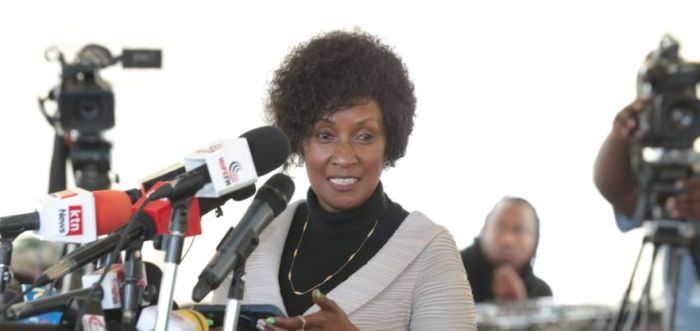The Teachers Service Commission (TSC) has introduced updated registration requirements for teachers under the Competence-Based Curriculum (CBC) through the Teachers Service Commission (Amendment) Bill, 2024.
Under the new regulations, prospective candidates must meet specific eligibility criteria. These guidelines particularly affect teachers with one teaching subject, Early Childhood Development Education (ECDE) teachers with Montessori training, individuals with certifications from foreign learning institutions, and those with special needs education.
Entry requirements for teacher registration under the CBC have been outlined as follows:
-
Diploma in Early Childhood Teacher Education (DECTE) holders must attain a C plain in Kenya Certificate of Secondary Education (KCSE) and possess a DECTE certificate. Candidates with disabilities must achieve a minimum of C-.
-
Diploma in Primary Teacher Education (DPTE) holders are required to present their certificates, scoring at least a C in KCSE, a D in Mathematics, and a C- in English. Those with disabilities must achieve a minimum of C- in KCSE.
-
Diploma in Secondary Teacher Education (DSTE) holders need to produce their certificates during registration, having scored at least a C in KCSE, a C+ in two teaching subjects, and a C in English, Kiswahili/Kenya Sign Language, and Mathematics. For candidates with disabilities, a minimum of C in KCSE, C in two teaching subjects, and C- in English, Kiswahili/Kenya Sign Language, and Mathematics is required.
-
Diploma in Technical Teacher Education (DTTE) holders should have obtained a C in KCSE, a C+ in two related STEM technical teaching subjects, and a diploma in General Technical subjects offered at junior and senior school levels.
-
Bachelor of Education or Bachelor of Arts with Education degree holders must possess the respective degrees, achieve a minimum of C+ in KCSE, C+ in two teaching subjects, C in English, and D+ in Mathematics.
-
Bachelor of Arts or Bachelor of Science degree holders must score C+ or above in KCSE, C+ in two teaching subjects, and hold a postgraduate diploma in Education.
-
Diploma in Adult and Continuing Teacher Education holders are required to have the certificate, score C plain and above in KCSE, and attain C- for learners with special needs.
For candidates with one teaching subject:
-
Bachelor of Education degree holders must attain C+ and above in KCSE, C+ and above in the teaching subject, and a C in English and D+ in Mathematics.
-
Bachelor of Arts or Bachelor of Science degree holders should score a minimum of C+ in KCSE, a C+ in the teaching subject, and possess a postgraduate diploma in Education.
-
Diploma in Education holders must score a C in C+ in teaching subjects or possess a Diploma in a subject offered at junior and senior school levels.
Regarding candidates with certificates from learning institutions:
Foreigners seeking registration under TSC must have their academic certificates equated and a professional education certificate recognized by a relevant body. They must also possess a work permit, a registration certificate as a teacher from the training jurisdiction, and an authorization letter from the Ministerial Vetting Committee.
Kenyans with foreign qualifications seeking registration by TSC must provide an equated academic certificate recognized by a relevant body and a professional education certificate from a recognized and relevant statutory body.
For Special Needs Education:
-
Diploma in Special Needs Education holders must score C in KCSE, while candidates with disabilities require an entry grade of C-.
-
Bachelor of Education holders need a mean grade of C+ in KCSE and C+ in English, Kiswahili, Maths, Biology, KSL, and any art subjects. They must also specialize in various areas of disabilities, including autism, intellectual disabilities, visual impairment, and physical disability, among others.
According to the new bill, candidates with a diploma in ECDE Montessori Curriculum must achieve a minimum of C plain or above in KCSE. The Montessori curriculum emphasizes hands-on learning skills and the development of real-world skills, representing a departure from the traditional syllabus.

